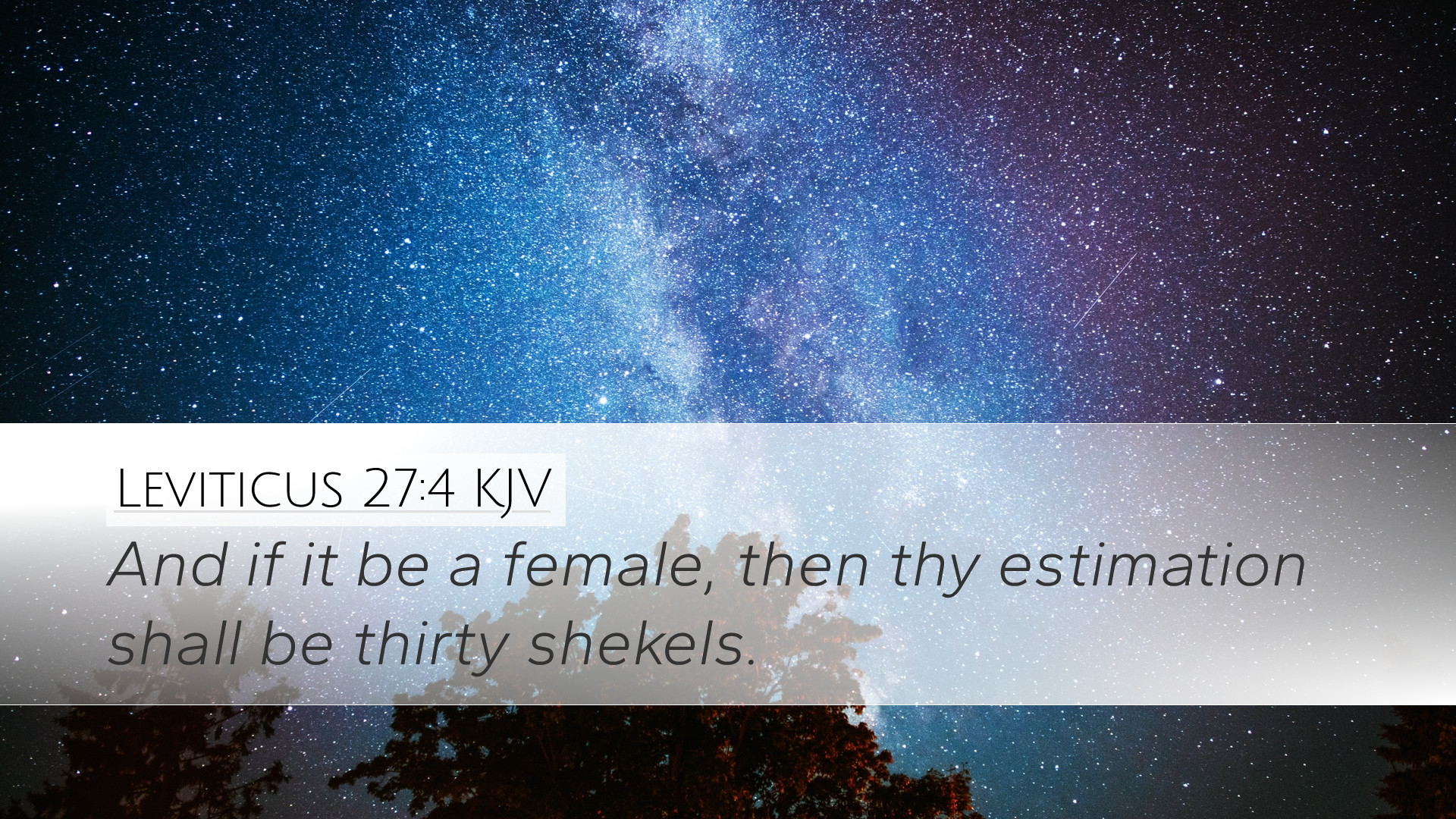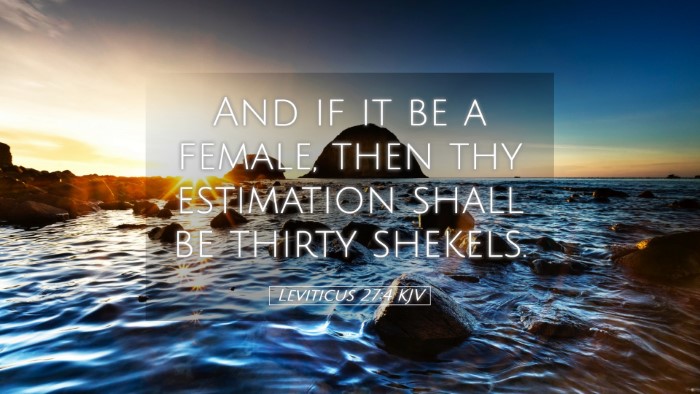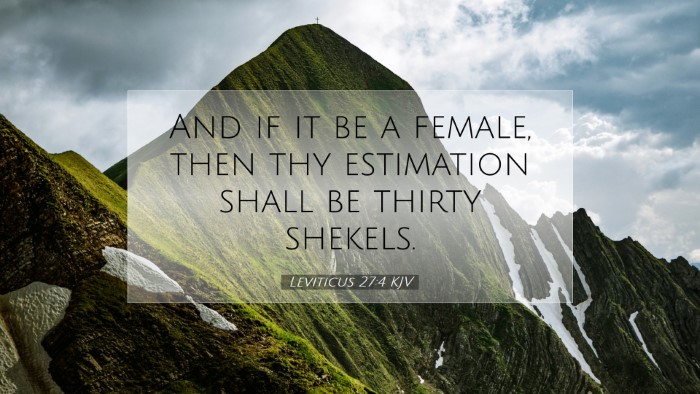Commentary on Leviticus 27:4
Leviticus 27:4 states:
"And if it be a male from twenty years old even unto sixty years old, then thy estimation shall be fifty shekels of silver, after the shekel of the sanctuary."
Introduction
This passage from Leviticus presents the principles of valuation in the context of vows and dedicated offerings. Understanding this verse involves examining the cultural, historical, and theological implications of valuations under the Mosaic Law.
Contextual Background
The overall chapter deals with the laws of vows and dedications, which reflect a significant aspect of Israelite worship and commitment to God. The values assigned in this verse are not arbitrary but rooted in both social structure and theological significance.
Valuation of Individuals
-
Male Persons and their Value:
The valuation of a male individual within the specified age range (twenty to sixty years) reflects the strength and potential usefulness of a man in society. Matthew Henry notes that this valuation is based on societal roles and contributions.
-
Relational and Social Implications:
In ancient Hebrew culture, the adult male was often seen as the primary provider and protector of the family. Hence, the fifty shekels signify not only personal worth but also the economic role of such individuals in maintaining familial and societal stability.
The Shekel of the Sanctuary
Understanding the mention of “the shekel of the sanctuary” is crucial. Albert Barnes emphasizes that this shekel represents a standard of measurement not only for monetary concerns but also for value as understood within the sacred community of Israel.
Theological Significance
Adam Clarke remarks on the greater theological implications behind the act of valuation. It reflects God’s ownership over all life and serves as a reminder that all individuals, whether vowed to service or not, are ultimately valued in sacred terms.
Applications for Modern Readers
-
Understanding Value:
This verse challenges readers to consider how we evaluate lives today. The historical context shows us that even when valuing lives, it is rooted in service to God and community.
-
The Nature of Vows:
The act of making a vow to dedicate oneself or one’s resources to God continues to resonate. The implications put forth in these scriptures compel us to consider the weight of our promises before God.
Conclusion
Leviticus 27:4 serves as a crucial reflection on the values we assign to individuals within both sacred and secular contexts. It invites believers to delve deeper into the relationships we hold with God and with one another, ensuring that all valuations reflect the inherent worth bestowed by the Creator.


